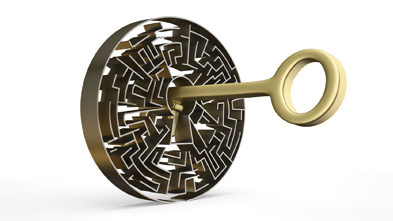
FAQs about psychogenic nonepileptic seizures (PNES)
What is the correct name to use? What is the big deal with the name we use to call psychogenic nonepileptic seizures (PNES)?
The currently accepted term in the medical world, particularly in the United States, is "psychogenic nonepileptic seizures" (PNES), but no name is perfect. Over centuries, PNES have been called a lot of things. Here are some examples:
Psychogenic nonepileptic seizures
What does the "psycho" in psychogenic mean?
* "Psycho" simply indicates that the episodes have a psychological trigger. However, some patients complain about this name because "psycho" is associated to something negative, as in the Hitchcock movie "Psycho."
* Some clinicians argue that the word "seizures" should be removed from PNES because it can be confused with "epileptic seizures."
Pseudoseizures
* What is the problem with this name? Calling something PSEUDO can be understood as meaning that it is "fake," "not sincere or authentic." This suggests that there is a conscious effort on the patient's part to deceive.
* To think of PNES in these terms confuses this condition with the concept of malingering which is to consciously fake or make up an illness.
* The term pseudoseizure has been abandoned because it is inaccurate, can diminish the empathy a health professional feels for the patient, and is offensive to the patient.
Hysterical seizures
* The concept of hysteria goes back thousands of years and was used to name unusual symptoms in women that were thought to be due to their "wandering uterus" (hysteria).
* What is the problem with this name? Basically, this name is incorrect in that the uterus has nothing to do with this condition and moreover, men (who do not have a uterus) also experience PNES.
Nonepileptic attack disorder (NEAD)
*What is good about this name? The term is somewhat imprecise and vague which is why some patients like it. Because it does not mention the psychological origin of the episodes, it is felt to lead to less rejection by some patients.
*What is the problem with this name? It does not point out the psychological origin of the condition and does not differentiate this condition from other seizure-like episodes caused by medical conditions, such syncope or narcoleptic attacks.
Psychological nonepileptic events
*What is good about this name? This name is precise because it underscores that the condition has an underlying psychological cause and that it is not epileptic. And it replaces the word "seizure" with "event", which means that this name is less likely to be confused with epilepsy.
* What is the problem with this name? Patients sometimes oppose the mention of "psychological" because they feel it may lead to being rejected or minimized by others, or because they mistakenly assume that if there is no clear emotional trigger before each seizure, therefore, a psychological explanation is not fitting.
Dissociative seizures
*What is good about this name? The term includes the word "dissociative", which refers to a more specific psychological mechanism thought to be involved in this disease.
*What is the problem with this name? Some authorities in the field disagree that dissociation is a mechanism present in all PNES and think that this is only true for the ones where there is alteration of awareness. Also, the term dissociation can be used in a descriptive way without implying a psychological mechanism, and some epileptic seizures may present with dissociative symptoms, making the term rather imprecise.
As you probably noted, we tend to refer to each "psychogenic nonepileptic seizure" individually as episode, event, spell or attack. We tend to avoid using the word "seizure" alone, (unless preceded by the word psychogenic and nonepileptic) to avoid confusion with epileptic seizures.